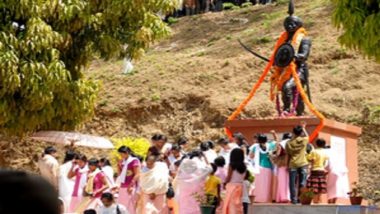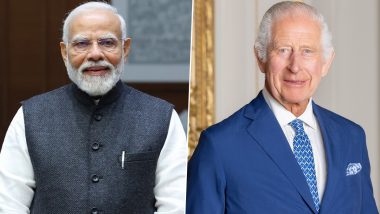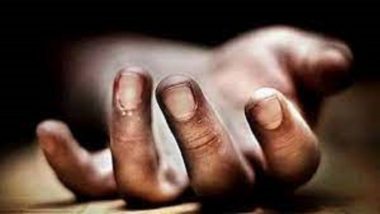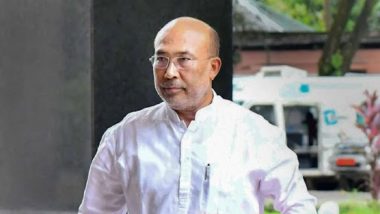Imphal, April 23: On ‘Khongjom Day’ on Tuesday, Manipur paid rich tributes to the indomitable spirit of Paona Brajabashi, a revered national hero who led the Manipuri Army against the British forces during the last Anglo-Manipuri War of 1891. Despite facing overwhelming odds in terms of both numbers and firepower, Paona and his 300-strong contingent valiantly defended their land over a century ago. The battle culminated at Khongjom, approximately 35 km from Imphal, where they fought fiercely until the end, refusing to retreat or surrender.
Paona’s unwavering dedication to honour and valour serves as a poignant reminder of the sacrifices made by the Manipuri patriots in defence of their homeland. To commemorate the moment when the erstwhile royal kingdom of Manipur lost its independence to the British, and to ensure that the courage, heroism, and patriotism ingrained in the Manipuri people of that era continue to inspire the present generation, April 23 is observed as ‘Khongjom Day’ every year. Manipur Insurgent Group UNLF Signs Peace Agreement; Amit Shah Calls It ‘Historic Milestone’ (See Pics and Video)
To mark the occasion, a state function was organised at the Khongjom War Memorial which was attended by the Governor, Chief Minister, and other dignitaries who offered floral tributes at Paona Brajabashi's statue which was followed by a gun salute. "Despite fighting valiantly, there was no one left standing except Paona Brajabashi, and when an Army officer asked him to switch sides and join the British, Paona refused. Impressed by his martial arts skills and valour, the British lured him with a plump post, to which Paona replied, "Death is more welcome than treason."
"Paona then took off his protective gear, and asked the British officer to behead him,” said Kachingtabam Hemchandra, a Thang-Ta exponent while describing Paona’s heroism on the battlefield. Manipur maintained its sovereignty until the British occupation following the 1891 Khongjom War. After the conflict, the British established a significant presence in Manipur, consolidating their control over the region. Internal crises and seven years of devastation from 1819 to 1826, inflicted by Burma (Now Myanmar), forced the rulers of Manipur to seek assistance from the British in reclaiming their kingdom.
Aligning with Prince Gambhir Singh, the British aided in driving out the Burmese during the first Anglo-Burmese War (1824 - 1826). This collaboration resulted in the restoration of Manipur's sovereignty, with Gambhir Singh appointed as the titular King The 1891 Anglo-Manipuri War, also referred to as the Last War of Independence, broke out due to the internal disunity among the Manipuri princes following the death of Maharaja Chandrakriti. This conflict was exacerbated by the pervasive and intolerable interference of the British in the affairs of the Kingdom, especially during the reign of Maharaja Surchandra Singh. A Journey of Grit, Determination, Manipur Village Girl Now Officer in Indian Army
Despite being surrounded by British forces attacking from three sides - Silchar, Kohima, and Tamu (Myanmar) - the spirited resistance displayed by the Manipuris became legendary for its patriotism and valour. The Manipuri soldiers were led by Paona Brajabashi, who was called back from retirement to confront the enemy columns, which possessed the tactical advantage of 20-pounder mountain guns. Paona Brajabashi, originally Paonam Nawol Singh, was born on December 20, 1823, to Paonam Tulsiram and Haobam Kunjeswari, during a time of political turmoil.
His father held the position of Laipham Lakpa, the head of Laipham Panah. It was later in his life that he acquired the title 'Paona Brajabashi'. At the age of 7, Paonam Nawol was introduced to Manipuri martial arts traditions under the tutelage of Major Loma Singh Longjamba, a respected authority in martial arts and warfare techniques. Recognising his talent and dedication, his mentor imparted to him the full breadth of his military expertise, including secret warfare tactics acquired over his long career.
Paonam also learnt riding, fencing, and freehand combat from his maternal uncle, Major Athouba Haobam Binod, who adopted him following the death of his father in 1850. After completing his studies, Paonam commenced his military career as a junior officer in the King's army in 1856, at the age of 23. For his valiant actions during the expedition to suppress an uprising by the Akam tribe of Chin Hills, Paonam was promoted and earned the title of Subedar Paona Brajabashi, bestowed upon him by Maharaj Chandrakriti whom he saved during an ambush on the expedition.
At the height of his military career in 1886, Paona Brajabashi decided to retire from the royal army. He was deeply troubled by the increasing interference of the British in the administration of the state. Despite retiring, Paona Brajabashi was promoted to the rank of Major and his expertise in handling cannons was utilised during the Battle of Khongjom.
(The above story first appeared on LatestLY on Apr 23, 2024 11:45 PM IST. For more news and updates on politics, world, sports, entertainment and lifestyle, log on to our website latestly.com).













 Quickly
Quickly




















